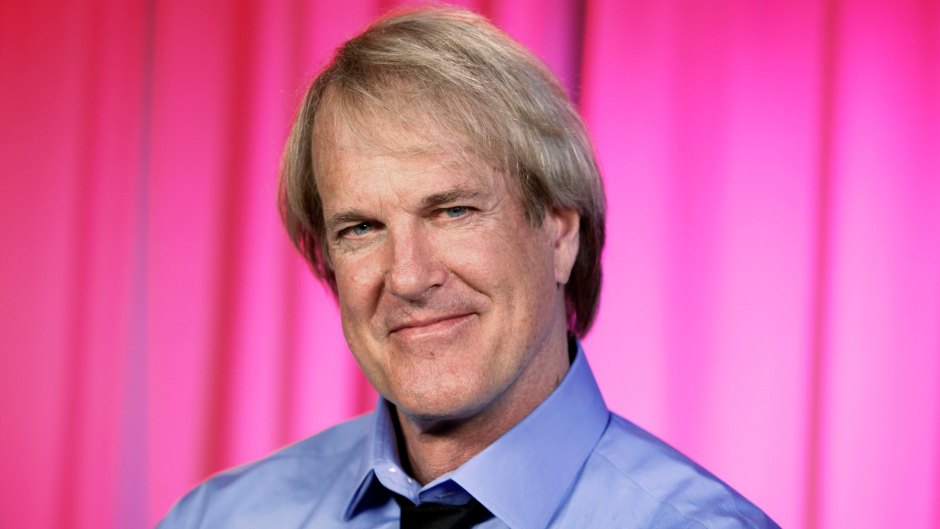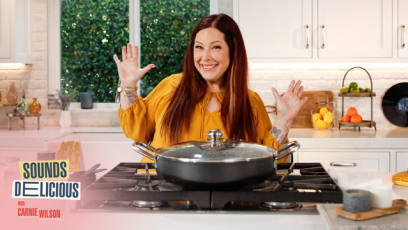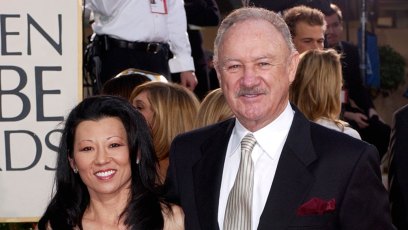
Photo by Reed Saxon/AP/Shutterstock
Inside John Tesh’s Journey of Faith and How Wife Connie Sellecca Gave Him the Strength to Fight Cancer
John Tesh seems like the perfect all-American guy. Blonde, blue-eyed, 6-foot-6 and built, he rose to fame as the co-host of Entertainment Tonight from 1986–’96 before leaving to earn four gold records and two Grammy nominations as a New Age musician. But privately, John has faced more trials than most: an abusive father, homelessness and, most recently, a fight with a rare form of prostate cancer that nearly killed him. “I’m a pretty emotional guy,” John, 67, exclusively confesses to Closer Weekly. “One time when I was suffering mightily, I looked my wife in the eyes and said, ‘Will you please kill me?’ ” But his longtime love, actress Connie Sellecca, 64, wasn’t about to give up on her husband of nearly 28 years. She gave him the strength to keep fighting, and five years since his diagnosis, he’s cancer-free. John chronicles his remarkable journey in a new memoir, Relentless: Unleashing a Life of Purpose, Grit, and Faith. “A combination of science, surgery and the bond you have with God,” he says, “took the cancer out of my body.”
Read Closer Weekly’s exclusive interview with John below.
How are you feeling, John?
I’m a crazy person. I’m 67, I was in the gym at 4:30 a.m., where I am every day for an hour-and-a-half — the oldest guy there.
You have to be an early bird to do that.
You do, and I learned from my school band teacher in Garden City [N.Y.], Dr. Wagner, to fall in love with the process, not to look for trophies or number-one records. If you keep doing the same thing every day, amazing stuff happens. Unfortunately with the suffering I went through with cancer, I couldn’t work that process by myself. I needed my wife, my [stepson], Gib, and my daughter, Prima, with me.
Yet you have accomplished a lot. Have you kept in touch with Mary Hart?
I kept in touch with Mary and other ET anchors that came before and after me: Robb Weller, Bob Goen and Mark Steines. We’ll have lunch every now and then.
Any cool interviews you recall?
I didn’t do many. As part of my contract, I wanted to be able to leave at 1 p.m. to record music, and I was working on Howie Mandel’s cartoon show [Bobby’s World]
for five years. But I did do most of the musician interviews: Elton John, Sting, Peter Gabriel, Henry Mancini. Eric Clapton was definitely a standout, how nice and generous he was in the interview.
Why did you leave the show?
ET didn’t start till I was about 35. I’d had a career in music and TV for 15 years before then. When I was 19 I had a [TV] job in Raleigh, North Carolina, then Orlando, Florida, then I was a news reporter in Nashville at 21. When I was 23, I was a correspondent for CBS News in New York City, the youngest reporter on the team, then lived in Europe for six years working for CBS network sports. Somebody found a tape of me anchoring the news in Nashville and said, “Hey, would you like to come to Hollywood, pursue your music and work only four hours a day?” That was ET. So when the Red Rocks concert [CD and PBS special] debuted in 1995, I went from selling maybe 150 albums a month to 50,000 and left TV to just focus on my music.
How would you describe your fan base?
Our live audience is women 45-plus who have dragged their husband or boyfriend to a John Tesh concert. [Laughs]
You’re touring now, and Connie directed your new music special, John Tesh: Songs & Stories from the Grand Piano, airing on PBS this year. How did you two meet?
In the gym in 1991. She was the only other person there and said, “John Tesh? Is that you?” I asked her out and she said yes, but I chickened out and never showed up. I was so taken by her beauty, I talked myself out of it: “Who am I to date a Hollywood star?”
Bad move, John!
A week later it hit me that I just ruined my life by not showing up, so I carpet-bombed her phone. She was very mad. I finally went on a radio show and got a friend to schedule Connie for an interview. He asked her out for me, she gave me another chance, and five hours and four months after our first date, we were engaged! Four months after that, we were married. It’s 28 years in April.
You’ve talked about not having sex before the wedding.
As you could imagine, it wasn’t my idea. But she figured, because we’d both been married before, why don’t we take this part slowly? Gib and his wife are married for 14 years and they did the same thing. I’m taking credit!
Ha! Are you a grandpa?
My grandkids [with Gib] are two girls and a boy — 8, 6 and 3 — and we just had them over last night. Gib is 38, an actor who does films and performs with us live and on our show. Prima’s 25, and she’s the lead instructor of a Pure Barre franchise.
You talk in the memoir about your rough childhood. What happened?
My dad was a retired naval officer, and when he came back from World War II, he had PTSD and struggled with alcohol. I had two older sisters and they got into some heavy arguments. It got physically abusive. When I entered junior high, both my parents got sober. My dad enrolled me in North Carolina State University in textile chemistry, and when I wanted to change my major to communications, they wouldn’t allow it, so I signed my professor’s name. They suspended me, my dad kicked me out of the family, and I ended up in a North Carolina park in a pup tent for about five months, working construction and pumping gas.
It wasn’t until I begged my way into a radio station that my life began to change.
Then your cancer battle came in 2015…
I had two major surgeries, then chemo, then took a drug that sucks all the testosterone out of you. You go through menopause, night sweats, can’t eat or sleep, and the cancer kept coming back. During that time, we discovered Scriptures in the Bible related to healing that we started studying. I began to get well, and then they found three or four spots and wanted to irradiate my pelvis with 62 treatments. [That’s when] we realized I was done with treatment. That was two years ago, and all the markers indicate there’s no cancer in my body.
Wonderful! It’s been quite a journey.
My dad [died of cancer] when I was 30. Both of my sisters died of cancer, and my mother, so I was worried about “catching cancer” my whole life. It’s my feeling that that worry contributed to manifesting my cancer. And now having the obligation of the cure, we go into hospitals, lay hands on the sick. It’s my life.
Reporting by Diana Cooper





































